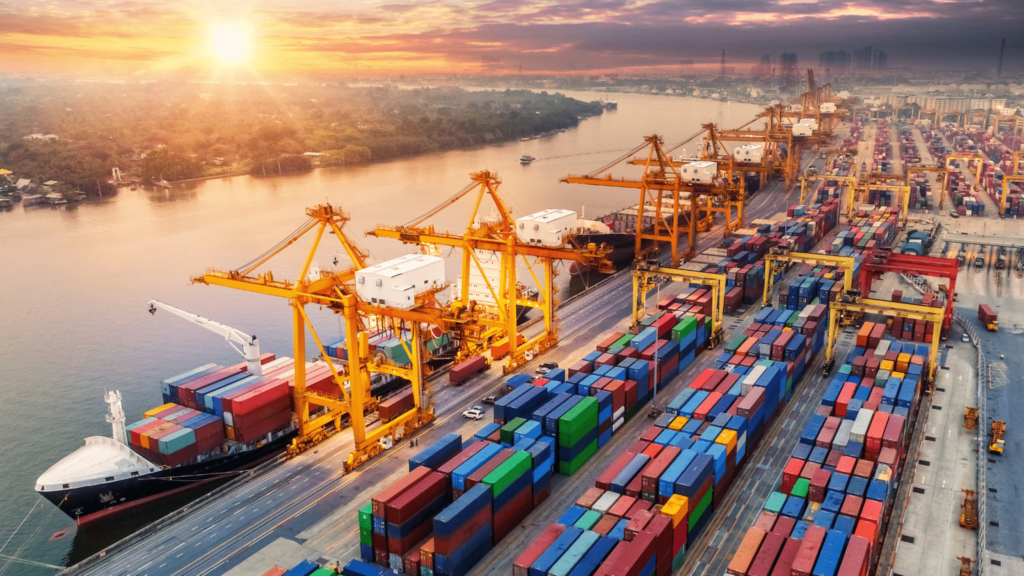Introduction:
Freight forwarding companies play a critical role in the global logistics industry. These companies are responsible for managing the movement of goods from one location to another, including shipping, customs clearance, and delivery. With the globalization of trade, freight forwarding company in Pakistan is facing new challenges and opportunities. This article will explore the future of freight forwarding companies in a global market and the trends shaping the industry.
Technology Advancements:
One of the most significant trends impacting the freight forwarding industry is the advancement of technology. The use of technology in logistics has the potential to transform the way goods are transported, tracked, and managed. Freight forwarding companies are increasingly using technology to streamline their operations and improve efficiency. This includes the use of cloud-based platforms, big data analytics, and automation. In the future, we can expect to see freight forwading company in pakistan continue to invest in technology to enhance their services and remain competitive.
Changing Trade Patterns:
Trade patterns are constantly evolving, driven by changes in the global economy, politics, and technology. The emergence of new markets and the shifting of trade routes can impact the demand for freight forwarding services. Freight forwarding companies need to be agile and responsive to these changes, adapting their services to meet the evolving needs of their clients. In the future, we can expect to see freight forwarding companies focus on diversifying their services and expanding into new markets.
Sustainability and Environmental Concerns:
Sustainability and environmental concerns are becoming increasingly important for businesses and consumers. Freight forwarding companies have a significant role to play in addressing these concerns. The transportation of goods is a major contributor to greenhouse gas emissions, and freight forwarding companies need to take steps to reduce their carbon footprint. This includes the use of cleaner transportation modes, such as electric vehicles and alternative fuels, and the optimization of supply chains to reduce waste and inefficiencies. In the future, we can expect to see freight forwarding companies prioritize sustainability and environmental concerns to remain competitive and meet the expectations of their clients.
E-commerce and Last-mile Delivery:
The growth of e-commerce has been a game-changer for the freight forwarding industry. With the rise of online shopping, there has been an increased demand for last-mile delivery services. Freight forwarding companies are increasingly focusing on last-mile delivery, which involves the transportation of goods from a transportation hub to their final destination. This requires a different set of skills and infrastructure than traditional freight forwarding services. In the future, we can expect to see freight forwarding companies continue to invest in last-mile delivery capabilities to meet the growing demand for e-commerce.
Collaboration and Partnerships:
Collaboration and partnerships are becoming increasingly important in the freight forwarding industry. With the complexity of global trade, freight forwarding companies need to work closely with other stakeholders, including carriers, customs brokers, and technology providers. Collaboration and partnerships can help freight forwarding companies improve efficiency, reduce costs, and provide better services to their clients. In the future, we can expect to see more collaboration and partnerships between freight forwarding companies and other stakeholders in the global logistics industry.
Conclusion:
The future of freight forwarding companies in a global market is full of opportunities and challenges. Freight forwarding companies need to adapt to the changing landscape of global trade, including the emergence of new markets, the impact of technology, and the increasing importance of sustainability and environmental concerns. The growth of e-commerce and the demand for last-mile delivery services is also reshaping the industry. Collaboration and partnerships are becoming increasingly important for freight forwarding companies to provide better services to their clients. Overall, the freight forwarding industry is expected to continue to play a critical role in the global logistics industry. And contribute to the growth of international trade.
You may also like
-
Stylish Custom Tuck Top Mailer Boxes for Every Brand
-
The Ultimate Guide to Custom Bakery Boxes: Design, Branding, and Impact
-
Cost-Effective & Recyclable Cereal Boxes Wholesale for Your Brand
-
Multivitamin Tablets for Women and Men: The Daily Boost Your Body Actually Wants
-
Boost Your Brand’s Image with Custom Kraft Boxes

